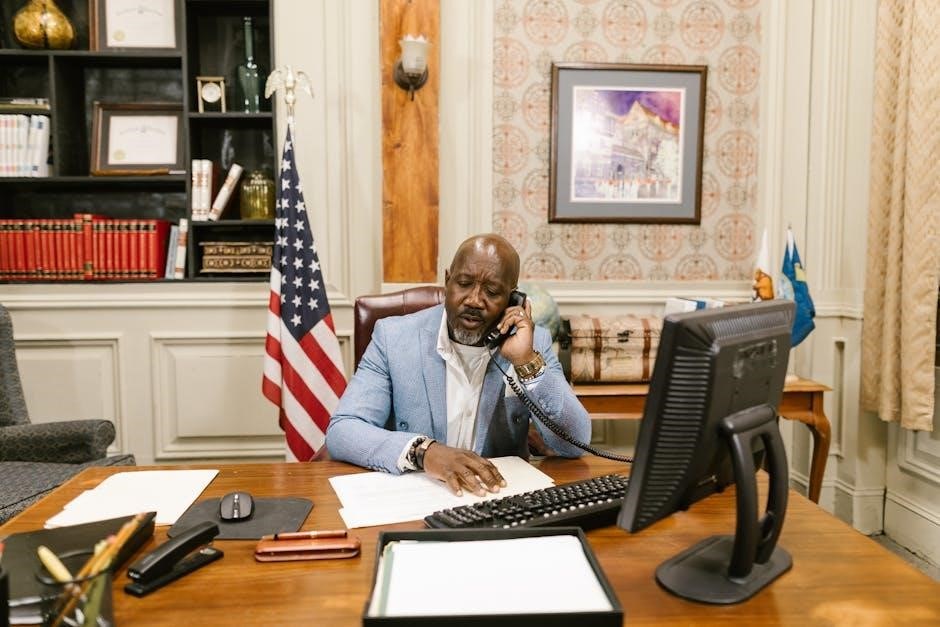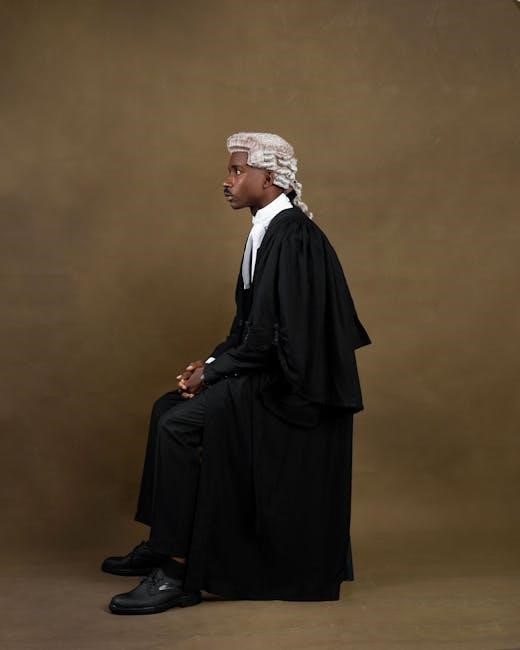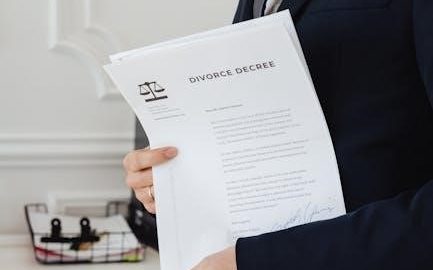The Brian Peck court documents 2004 PDF are central to a high-profile legal case involving allegations of child sexual abuse during his tenure as a Nickelodeon coach and actor. The case gained significant attention due to Peck’s prominent role in the entertainment industry and the serious nature of the accusations. The unsealed documents, revealed nearly two decades later, provide critical insights into the trial and its implications, including supportive letters from industry insiders and their impact on the case.
Overview of the Case and Its Significance
The case involving Brian Peck, a former Nickelodeon coach and actor, revolves around allegations of child sexual abuse, leading to his arrest in 2003. The unsealed 2004 court documents, made public nearly two decades later, revealed 41 letters of support from prominent figures, including actors Will Friedle and Rider Strong. These letters, along with other evidence, played a role in the trial’s outcome. The case’s significance lies in its exposure of systemic issues within the entertainment industry and the leniency shown to powerful figures. The unsealed documents sparked public outrage, highlighting the need for accountability and transparency in such cases.
Background of Brian Peck
Brian Peck was a Hollywood actor and dialogue coach, known for his work on Nickelodeon shows like Drake & Josh. His career was marred by allegations of child sexual abuse, leading to his arrest in 2003 and subsequent legal battles.
Brian Peck’s Career in Hollywood
Brian Peck was a prominent figure in Hollywood, working as both an actor and a dialogue coach. He gained recognition for his contributions to popular Nickelodeon shows like Drake & Josh and Victorious. Peck’s career began in the early 1980s, with roles in films and television series that showcased his versatility as a performer. He also worked behind the scenes, helping young actors refine their dialogue delivery. However, his professional success was overshadowed by allegations of misconduct, which led to his arrest in 2003 and subsequent legal battles. Despite his contributions to the entertainment industry, Peck’s career was ultimately defined by the controversies surrounding his personal conduct.
The Arrest and Charges in 2003
Brian Peck was arrested on August 19, 2003, by the Los Angeles Police Department’s Sexually Exploited Child Unit. He was charged with lewd acts with a child under 14, specifically involving actor Drake Bell, who was a minor at the time. The arrest followed an investigation into allegations of misconduct, which led to Peck’s indictment. Court documents revealed that Peck was prohibited from direct contact with children but was not barred from working on productions involving minors. This legal distinction raised concerns about the entertainment industry’s handling of such cases. The charges marked a turning point in Peck’s career, leading to widespread scrutiny and legal consequences.

The Court Case and Trial
Brian Peck was convicted in 2004 of lewd acts with a child and sentenced to 16 months in prison. He was required to register as a sex offender.

Charges of Lewd Acts with a Child
Brian Peck was charged with lewd acts involving a minor, specifically actor Drake Bell, in 2003. The allegations led to a high-profile trial, where Peck was ultimately convicted. The charges carried significant legal consequences, including mandatory sex offender registration and restrictions on contact with children. The case drew widespread media attention due to Peck’s prominent role in the entertainment industry. The trial highlighted the severity of the accusations and the impact on both the victim and the defendant. Peck’s conviction marked a turning point in his career, leading to public scrutiny and professional fallout. The charges remain a focal point in discussions about accountability in the entertainment industry.
Key Evidence and Testimonies
The trial of Brian Peck relied heavily on key evidence and testimonies to establish the charges of lewd acts with a child. Among the evidence presented were testimonies from the victim, Drake Bell, detailing the alleged abuse. Additionally, 41 letters of support for Peck were submitted by industry insiders, including actors Will Friedle and Rider Strong, which were intended to vouch for his character. However, the prosecution presented evidence of specific interactions between Peck and the minor, which supported the allegations. The testimonies and evidence played a pivotal role in shaping the trial’s outcome, ultimately leading to Peck’s conviction and sentencing.
The Sentencing and Its Aftermath
Brian Peck was sentenced to 16 months in prison in October 2004 after being convicted of lewd acts with a child. Following his release, he was required to register as a sex offender, significantly impacting his personal and professional life. The court documents revealed that Peck was prohibited from direct contact with children but was not barred from working on productions involving minors. This ruling sparked controversy, as it allowed him to continue his career in the entertainment industry under certain restrictions. The sentencing and its aftermath highlighted the legal system’s approach to balancing punishment with rehabilitation in high-profile cases.
The Unsealed Court Documents
The Brian Peck court documents 2004 PDF were unsealed after nearly two decades, revealing 41 letters of support from industry insiders and shedding light on the case’s complexities for a docuseries.
What the 2004 Documents Reveal
The unsealed Brian Peck court documents 2004 PDF reveal shocking details about the case, including 41 letters of support from prominent actors and industry insiders. These letters, written by figures like Will Friedle and Rider Strong, were submitted to argue for leniency in Peck’s sentencing. The documents also outline the charges against Peck, which included lewd acts with a minor, and provide insight into the trial proceedings. Additionally, the records show how Peck’s role in the entertainment industry influenced public perception and legal strategies. The unsealed files have sparked widespread discussion about accountability in Hollywood and the handling of such cases.
Letters of Support from Industry Insiders
The unsealed Brian Peck court documents 2004 PDF include 41 letters of support from prominent actors and industry insiders, such as James Marsden, Will Friedle, and Rider Strong. These letters were submitted to the court to argue for leniency in Peck’s sentencing, highlighting his professional reputation and personal character. Many writers expressed shock at the allegations and vouched for Peck’s integrity, often downplaying the severity of the charges. The letters reveal a stark contrast between Peck’s public image as a respected figure in children’s entertainment and the serious accusations against him. Their inclusion in the court records has sparked debate about the influence of industry connections in legal proceedings.
Public Reaction to the Unsealed Information
The unsealing of the Brian Peck court documents 2004 PDF sparked widespread shock and outrage, particularly among fans of Nickelodeon and Boy Meets World. The revelation of 41 letters of support from industry insiders, including James Marsden, Will Friedle, and Rider Strong, fueled public debate. Many expressed disbelief that prominent figures defended Peck despite the serious allegations. The docuseries Quiet on Set: The Dark Side of Kids TV further amplified the backlash, as viewers criticized the letters for downplaying the severity of the charges. The public reaction highlighted a broader concern about the entertainment industry’s handling of abuse allegations and the perceived hypocrisy of those who supported Peck.

Support Letters and Their Impact
The 41 letters of support for Brian Peck, including from James Marsden and Boy Meets World stars, highlighted industry backing, influencing public perception and the trial’s dynamics significantly.

Prominent Figures Who Wrote Letters
Several well-known figures wrote letters of support for Brian Peck, including actor James Marsden, Boy Meets World stars Will Friedle and Rider Strong, and actress Kimmy Robertson. Marsden, a close friend, pleaded for leniency, while Friedle and Strong highlighted Peck’s positive influence during their careers. Robertson, who knew Peck since 1981, recalled their early shared experiences in the industry. These letters, part of 41 submissions, underscored Peck’s professional relationships and the goodwill he had cultivated. Their endorsements were significant, reflecting the divide between his public persona and the serious allegations against him.
The Role of These Letters in the Trial
The letters of support played a significant role in Brian Peck’s trial, aiming to influence the court’s perception of his character and mitigate potential sentencing. The 41 letters, including those from James Marsden, Will Friedle, Rider Strong, and Kimmy Robertson, highlighted Peck’s professional contributions and personal qualities. While the letters were intended to humanize him, they also sparked controversy, as critics argued they downplayed the severity of the charges. The prosecution likely used the letters to contrast the public’s positive image of Peck with the alleged crimes. Ultimately, the letters were part of a broader legal strategy, though their impact on the trial’s outcome remains debated.

The Docuseries and Its Findings
The Investigation Discovery docuseries, Quiet on Set: The Dark Side of Kids TV, uncovered new information by unsealing Brian Peck’s court documents, revealing letters of support and shedding light on the case’s complexities.
Quiet on Set: The Dark Side of Kids TV

The Investigation Discovery docuseries, Quiet on Set: The Dark Side of Kids TV, delves into the darker side of children’s television, uncovering shocking truths about Brian Peck’s case. Directors Mary Robertson and Emma Schwartz petitioned the Los Angeles court to unseal Peck’s court documents, revealing 41 letters of support from industry insiders, including actors Will Friedle and Rider Strong. The series aired these documents in its fourth episode, shedding light on the allegations of child sexual abuse and the subsequent trial. The docuseries not only exposed the toxic culture behind iconic kids’ shows but also highlighted the legal and ethical implications of such cases, sparking widespread public debate.
How the Docuseries Uncovered New Information
The docuseries Quiet on Set: The Dark Side of Kids TV uncovered new information by petitioning the Los Angeles court to unseal Brian Peck’s 2004 court documents; Directors Mary Robertson and Emma Schwartz sought these records to shed light on the allegations against Peck, revealing 41 letters of support from industry figures like James Marsden, Will Friedle, and Rider Strong. The series aired excerpts from these documents, exposing the toxic culture behind children’s TV shows and raising questions about the entertainment industry’s handling of such cases. This revelation sparked public outrage and renewed discussions about accountability in Hollywood, providing fresh insights into a decades-old case.

Legal and Ethical Implications
The unsealing of Brian Peck’s court documents raised significant legal and ethical questions about accountability in the entertainment industry and the handling of sensitive criminal cases involving minors.
Implications for the Entertainment Industry
The unsealing of Brian Peck’s court documents exposed systemic flaws in how the entertainment industry handles allegations of misconduct, particularly involving minors. The revelation that Peck continued working with children despite charges raised questions about industry oversight and accountability. Public outcry intensified demands for stricter safeguards and transparency in hiring practices. The case highlighted the need for better vetting processes and accountability measures to protect vulnerable individuals. It also sparked broader conversations about power dynamics and the exploitation of minors in the industry. The fallout led to increased scrutiny of industry practices, prompting some companies to adopt more rigorous policies to prevent similar incidents.

Changes in Legal Procedures Following the Case
The unsealing of Brian Peck’s court documents led to significant changes in legal procedures, particularly in handling cases involving minors and high-profile individuals. The case highlighted the importance of transparency in judicial processes, prompting courts to reconsider how sensitive documents are sealed or disclosed. Public pressure following the revelations pushed for stricter regulations to prevent similar abuses of power. New laws and oversight measures were introduced to ensure better accountability in cases involving child safety and exploitation. These changes aim to protect vulnerable individuals and uphold justice more effectively, while also addressing public concerns about fairness in the legal system.
Accessing the Court Documents
To access the Brian Peck court documents 2004 PDF, visit UNIcourt.com and enter docket number LA043791. This provides instant access to the legal records for download.
How to Obtain the 2004 PDF Documents

To obtain the Brian Peck court documents 2004 PDF, visit UNIcourt.com and enter the docket number LA043791. This platform provides direct access to the legal records, allowing users to download the documents instantly. The PDF files include court transcripts, legal motions, and other relevant materials related to the case. By following these steps, individuals can access the official records and gain insight into the proceedings. This process ensures transparency and public access to important legal information.
Importance of Public Access to Legal Records
Public access to legal records, such as the Brian Peck court documents 2004 PDF, ensures transparency and accountability within the justice system. It allows citizens to understand the legal process and verify the fairness of proceedings. By making these documents available, the public can gain insight into the handling of high-profile cases, fostering trust in the judicial system. The unsealing of these records highlights the importance of open access to legal information, enabling scrutiny and promoting justice. This transparency is crucial for maintaining public confidence and ensuring that legal proceedings are conducted fairly and without undue influence.
The unsealing of the Brian Peck court documents 2004 PDF has sparked significant public debate, revealing a complex case with far-reaching implications for justice and accountability.
Final Thoughts on the Brian Peck Case
The unsealed Brian Peck court documents 2004 PDF highlight a disturbing case that has left lasting impacts on victims, the entertainment industry, and public trust. The revelations of alleged child sexual abuse and the subsequent trial underscore the importance of accountability, even for prominent figures. The discovery of 41 letters of support from industry insiders, including actors like James Marsden, Will Friedle, and Rider Strong, raises ethical questions about solidarity in Hollywood. The docuseries Quiet on Set: The Dark Side of Kids TV played a pivotal role in uncovering these documents, shedding light on systemic issues and sparking necessary conversations about justice and protection for vulnerable individuals.
